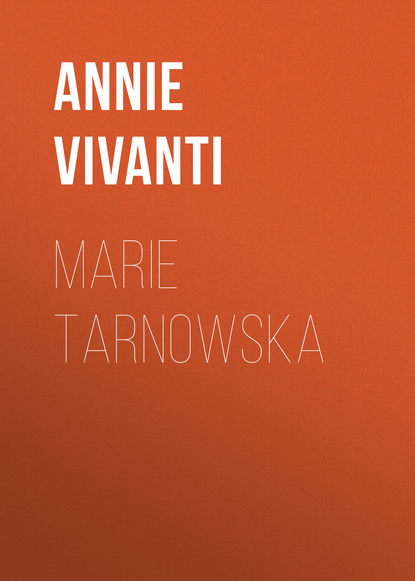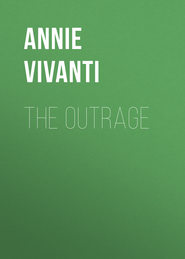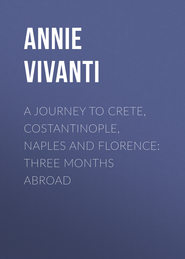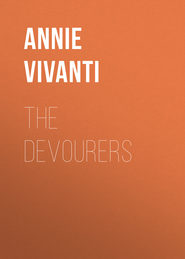По всем вопросам обращайтесь на: info@litportal.ru
(©) 2003-2024.
✖
Marie Tarnowska
Настройки чтения
Размер шрифта
Высота строк
Поля
Da bin ich sehr intim…
The joyous verses ring in my ears like the shrieks of maleficent Furies, scourging me with nefarious counsels and diabolic commands....
And while little Tioka laughs and claps his hands, I, his mother, sink ever deeper and deeper into the gulf of despair; and crime, like a sea of mire, closes its corrupt waves over my head.
XXXVI
Everything came about as Prilukoff had foreseen. Kamarowsky found me the following evening alone with Tioka at the Bristol Hotel. He overwhelmed me with reproaches and with endearments.
I maintained a mysterious silence, which he interpreted merely as the caprice of a spoiled child; nor did he take umbrage at it. He was too happy at having found me to care to quarrel either with the Fates or with me. All he said was: “Marie, I shall not leave you again.” And the promise sounded almost like a threat.
For some time Prilukoff gave no sign. I might have thought he had forgotten me. He had fixed a definitive space of time: ten days.
On the eighth day he sent me a note, telling me to come to the Hotel Victoria that evening at nine o'clock. He would then provide we with what was needful. I was not to fail—or he would come himself.
I dined with Paul Kamarowsky as usual; then, pleading a headache, I retired to my room at eight o'clock.
Half an hour later a closed carriage was conveying me to the Hotel Victoria.
From Prilukoff's hands I received a syringe, two tiny bottles, and a box filled with globules of curare, nitrate of amyl and chloroform. From his set gray lips I received instructions how to use these things. His teeth were chattering as well as my own; his hands were ice-cold and his eyes distraught.
Then I fell on my knees at his feet. I implored him with all the strength of desperation to forego his abominable purpose. I reminded him of his past, of his unsullied youth, of the kind and generous love that had at first bound him to me; with tears streaming down my face I clung to his knees and swore to him eternal gratitude, eternal devotion, if only he would not stain my soul with crime, if only he would not ruin himself forever with so dark and vile a deed.
I beat my forehead against his feet, entreating of him death for myself, but pity, pity for a generous, chivalrous man whose only wish was to protect and save me.
What heaven-inspired words were granted me that I was able to move him? I cannot tell; but suddenly a great shudder went through him and agonized sobs shook his frame. He bent down and raised me. Then he sank into an armchair and wept aloud with uplifted face, a terrible spectacle of anguish and desolation.
I also wept, kneeling beside him, kissing his hands, thanking him, blessing him.
“Donat, dearest, do not weep! It has been all a dream—a fearful dream. We were ill—we were poor demented creatures. God will not remember it—He will cancel and forgive everything. Let us thank Him, Donat, for not permitting us to do harm to any one. Let us begin life all over again—a new, honorable life.”
“Ah, no,” groaned Prilukoff. “I am a criminal. I have stolen!”
“Never mind, never mind. You will give it all back. I will help you to give it all back. We must be prepared to face suffering and humiliation, but we shall atone; we shall take up our lives again, and retrieve and redeem the past.”
Even while I spoke I resolved that I would confess everything to Kamarowsky, and this thought filled me with joy. I would reveal to him the darkest recesses of my soul; I would confess the iniquitous treachery plotted against him, my every act of baseness and of shame. He would drive me from him in loathing, he would tread me under foot like some poisonous thing, but I would bow my head beneath his wrath and his disdain. I would go far away and live the rest of my life in humility and penitence. I would perhaps link my fate with that of Prilukoff, the degraded outcast … yes, my penance should be to stay forever with him who inspired me now with so much horror and fear....
Carried away by an ecstasy of feeling, we knelt down in that paltry hotel-room and thanked God for having opened our eyes, for having touched our hearts, for having saved us. Then praying aloud: “Lord, let not our sins be counted against us…” we broke the syringe and the phials of poison into a thousand fragments. Prilukoff tore the flesh of his hands as he snapped the hollow steel needle, which thrust itself into his palm like some fierce, living thing. “Blot out our transgressions and remember not our iniquities…” We trampled on the globules of amyl and chloroform, setting free the lethal vapors, which turned us giddy. Intoxicated with them and with our own emotions we fell once more on our knees, praying with uplifted hands: “Deliver us from our sins … of Thy mercy save us … save us…”
XXXVII
I remember that once in our childhood we were by the sea—I cannot tell in what country we were, nor what sea it was—and our English governess took us out one morning on the beach to see a tidal wave.
“What is a tidal wave, Miss Williams?” we inquired.
“Two or three immense waves which only come once a year,” replied the sibylline Miss Williams. “Now keep quiet and look.”
We kept quiet and looked. And presently we thought we could see a huge wave, larger than all the others, coming towards us from the horizon.
“Look! Look there! It is the tidal wave!”
“No,” said Miss Williams. “That is not it.”
And, indeed, presently there appeared a wave which was greater still—it reared its crest, towered aloft, and fell.
“That was it! That was it!”
But still farther away, on the line of the horizon, a mighty wave—a veritable wall of water—was approaching, formidable, gigantic, fabulous....
That was the “tidal wave.”
In the course of my life, when events tragic and inexorable have raised their threatening billows above me and caught me in their crashing downfall, sweeping me like a piece of frail wreckage towards destruction, I have said to myself: “This is the tidal wave. Nothing worse can follow. Nothing more terrible than this can come upon me.”
But lo! behind that great wave of calamity another and still greater has followed, and still another and another—fabulous waves of tragedy and disaster.
Thus it was that when I left Prilukoff that evening I thought that the tidal wave of my destiny had at last passed over me. Nothing more could crush and overwhelm me; before me stretched only the limitless levels of grief and remorse.
But it was not so. Another—the last—wave of disaster was rearing itself like the fabulous wall of water of my childhood's recollections, carrying me on its crest, crashing down with me to irremediable ruin, to the fathomless abyss of crime.
That very night Tioka fell ill. Elise came hurriedly into my room to call me. “Come at once, my lady. The young master is very ill. He is delirious and keeps talking to himself.”
I ran into the child's room. He was sitting up in bed, his wide eyes glowing in his fevered face. Where and when had I once before seen him like this?…
His mind was wandering, and he talked incessantly—about Tania whom he had not seen or mentioned for the past two years, about his grandmother, and the old dog Bear. Then suddenly he asked for a picture and for some poetry. “Mama,” he said, clinging to my neck, “say the poetry to me, the poetry—”
“What poetry, oh, my darling, my darling?”
“The poetry about the picture. Say it. Say it.” He began to cry and tremble with his hot cheek close to mine.
I racked my brain for a poem:
“This is the miller who lives in the mill,
The mill beside the river, oh!…”
“No, no, no!” cried the child. “Not that!”
I tried again:
“Brown-eyed Peter is going for a soldier;
Going for a soldier with his little turn-up nose…”
“No, no, no!” shrieked Tioka despairingly. “Tania, Tania—the moon—the picture. Say it quickly!”
A lightning flash seemed to tear the clouds of oblivion from my brain and illuminate the past. I was once more in Vassili's country house … once more I entered the dim white nursery where my children, like two blonde seraphs, lay asleep.... A lamp hanging between the two little cots lit up an artless picture hanging on the wall—a rippling-haired Madonna standing in a star-lit sky, holding in her youthful arms the infant Jesus with a count's coronet on His head.
Crying softly as I cradled my son's fair head upon my breast, I began:
“When little children sleep, the Virgin Mary
Steps with white feet upon the crescent moon....”
The joyous verses ring in my ears like the shrieks of maleficent Furies, scourging me with nefarious counsels and diabolic commands....
And while little Tioka laughs and claps his hands, I, his mother, sink ever deeper and deeper into the gulf of despair; and crime, like a sea of mire, closes its corrupt waves over my head.
XXXVI
Everything came about as Prilukoff had foreseen. Kamarowsky found me the following evening alone with Tioka at the Bristol Hotel. He overwhelmed me with reproaches and with endearments.
I maintained a mysterious silence, which he interpreted merely as the caprice of a spoiled child; nor did he take umbrage at it. He was too happy at having found me to care to quarrel either with the Fates or with me. All he said was: “Marie, I shall not leave you again.” And the promise sounded almost like a threat.
For some time Prilukoff gave no sign. I might have thought he had forgotten me. He had fixed a definitive space of time: ten days.
On the eighth day he sent me a note, telling me to come to the Hotel Victoria that evening at nine o'clock. He would then provide we with what was needful. I was not to fail—or he would come himself.
I dined with Paul Kamarowsky as usual; then, pleading a headache, I retired to my room at eight o'clock.
Half an hour later a closed carriage was conveying me to the Hotel Victoria.
From Prilukoff's hands I received a syringe, two tiny bottles, and a box filled with globules of curare, nitrate of amyl and chloroform. From his set gray lips I received instructions how to use these things. His teeth were chattering as well as my own; his hands were ice-cold and his eyes distraught.
Then I fell on my knees at his feet. I implored him with all the strength of desperation to forego his abominable purpose. I reminded him of his past, of his unsullied youth, of the kind and generous love that had at first bound him to me; with tears streaming down my face I clung to his knees and swore to him eternal gratitude, eternal devotion, if only he would not stain my soul with crime, if only he would not ruin himself forever with so dark and vile a deed.
I beat my forehead against his feet, entreating of him death for myself, but pity, pity for a generous, chivalrous man whose only wish was to protect and save me.
What heaven-inspired words were granted me that I was able to move him? I cannot tell; but suddenly a great shudder went through him and agonized sobs shook his frame. He bent down and raised me. Then he sank into an armchair and wept aloud with uplifted face, a terrible spectacle of anguish and desolation.
I also wept, kneeling beside him, kissing his hands, thanking him, blessing him.
“Donat, dearest, do not weep! It has been all a dream—a fearful dream. We were ill—we were poor demented creatures. God will not remember it—He will cancel and forgive everything. Let us thank Him, Donat, for not permitting us to do harm to any one. Let us begin life all over again—a new, honorable life.”
“Ah, no,” groaned Prilukoff. “I am a criminal. I have stolen!”
“Never mind, never mind. You will give it all back. I will help you to give it all back. We must be prepared to face suffering and humiliation, but we shall atone; we shall take up our lives again, and retrieve and redeem the past.”
Even while I spoke I resolved that I would confess everything to Kamarowsky, and this thought filled me with joy. I would reveal to him the darkest recesses of my soul; I would confess the iniquitous treachery plotted against him, my every act of baseness and of shame. He would drive me from him in loathing, he would tread me under foot like some poisonous thing, but I would bow my head beneath his wrath and his disdain. I would go far away and live the rest of my life in humility and penitence. I would perhaps link my fate with that of Prilukoff, the degraded outcast … yes, my penance should be to stay forever with him who inspired me now with so much horror and fear....
Carried away by an ecstasy of feeling, we knelt down in that paltry hotel-room and thanked God for having opened our eyes, for having touched our hearts, for having saved us. Then praying aloud: “Lord, let not our sins be counted against us…” we broke the syringe and the phials of poison into a thousand fragments. Prilukoff tore the flesh of his hands as he snapped the hollow steel needle, which thrust itself into his palm like some fierce, living thing. “Blot out our transgressions and remember not our iniquities…” We trampled on the globules of amyl and chloroform, setting free the lethal vapors, which turned us giddy. Intoxicated with them and with our own emotions we fell once more on our knees, praying with uplifted hands: “Deliver us from our sins … of Thy mercy save us … save us…”
XXXVII
I remember that once in our childhood we were by the sea—I cannot tell in what country we were, nor what sea it was—and our English governess took us out one morning on the beach to see a tidal wave.
“What is a tidal wave, Miss Williams?” we inquired.
“Two or three immense waves which only come once a year,” replied the sibylline Miss Williams. “Now keep quiet and look.”
We kept quiet and looked. And presently we thought we could see a huge wave, larger than all the others, coming towards us from the horizon.
“Look! Look there! It is the tidal wave!”
“No,” said Miss Williams. “That is not it.”
And, indeed, presently there appeared a wave which was greater still—it reared its crest, towered aloft, and fell.
“That was it! That was it!”
But still farther away, on the line of the horizon, a mighty wave—a veritable wall of water—was approaching, formidable, gigantic, fabulous....
That was the “tidal wave.”
In the course of my life, when events tragic and inexorable have raised their threatening billows above me and caught me in their crashing downfall, sweeping me like a piece of frail wreckage towards destruction, I have said to myself: “This is the tidal wave. Nothing worse can follow. Nothing more terrible than this can come upon me.”
But lo! behind that great wave of calamity another and still greater has followed, and still another and another—fabulous waves of tragedy and disaster.
Thus it was that when I left Prilukoff that evening I thought that the tidal wave of my destiny had at last passed over me. Nothing more could crush and overwhelm me; before me stretched only the limitless levels of grief and remorse.
But it was not so. Another—the last—wave of disaster was rearing itself like the fabulous wall of water of my childhood's recollections, carrying me on its crest, crashing down with me to irremediable ruin, to the fathomless abyss of crime.
That very night Tioka fell ill. Elise came hurriedly into my room to call me. “Come at once, my lady. The young master is very ill. He is delirious and keeps talking to himself.”
I ran into the child's room. He was sitting up in bed, his wide eyes glowing in his fevered face. Where and when had I once before seen him like this?…
His mind was wandering, and he talked incessantly—about Tania whom he had not seen or mentioned for the past two years, about his grandmother, and the old dog Bear. Then suddenly he asked for a picture and for some poetry. “Mama,” he said, clinging to my neck, “say the poetry to me, the poetry—”
“What poetry, oh, my darling, my darling?”
“The poetry about the picture. Say it. Say it.” He began to cry and tremble with his hot cheek close to mine.
I racked my brain for a poem:
“This is the miller who lives in the mill,
The mill beside the river, oh!…”
“No, no, no!” cried the child. “Not that!”
I tried again:
“Brown-eyed Peter is going for a soldier;
Going for a soldier with his little turn-up nose…”
“No, no, no!” shrieked Tioka despairingly. “Tania, Tania—the moon—the picture. Say it quickly!”
A lightning flash seemed to tear the clouds of oblivion from my brain and illuminate the past. I was once more in Vassili's country house … once more I entered the dim white nursery where my children, like two blonde seraphs, lay asleep.... A lamp hanging between the two little cots lit up an artless picture hanging on the wall—a rippling-haired Madonna standing in a star-lit sky, holding in her youthful arms the infant Jesus with a count's coronet on His head.
Crying softly as I cradled my son's fair head upon my breast, I began:
“When little children sleep, the Virgin Mary
Steps with white feet upon the crescent moon....”








